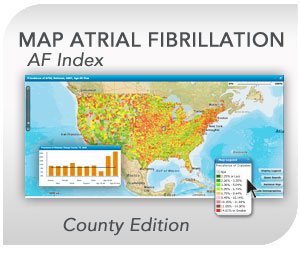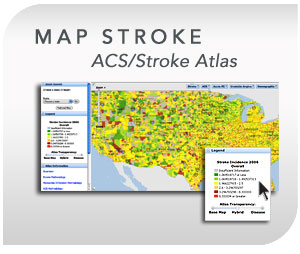Stroke Reports
Monday, March 11th, 2013

Wiley: March 7, 2013 Objective: Hemorrhagic transformation (HT) is a major complication of ischemic stroke that worsens outcomes and increases mortality. Disruption of the blood brain barrier is a central feature to HT pathogenesis, and leukocytes may contribute to this process. We sought to determine whether ischemic strokes that develop HT have differences in RNA […]
Stroke Reports
Monday, March 11th, 2013

Neurology: March 6, 2013 Objective: To determine the prevalence of hypertension (HPT) in the acute phase after ischemic stroke (IS) and explore its relationship to outcome. Methods: We performed a retrospective review of children aged 1 month to 18 years with first IS admitted to a tertiary hospital between 2003 and 2008. Blood pressure readings recorded over […]
Stroke Reports
Monday, March 11th, 2013

Wiley: March 6, 2013 OBJECTIVES: There is a recognized need to improve selection of patients with carotid artery stenosis for carotid endarterectomy (CEA). We assessed the value of MRI defined carotid plaque hemorrhage (MRIPH) to predict recurrent ipsilateral cerebral ischemic events, and stroke in symptomatic carotid stenosis. METHODS: 179 symptomatic patients with ≥50% stenosis were […]
Stroke Reports
Monday, March 11th, 2013

STROKEAHA: February 28, 2013 Background and Purpose—Coronary artery calcification (CAC) is a noninvasive marker of plaque load that predicts myocardial infarcts in the general population. Herein, we investigated whether CAC predicts stroke events in addition to established risk factors that are part of the Framingham risk score. Methods—A total of 4180 subjects from the population-based Heinz […]
Stroke Reports
Monday, March 11th, 2013

STROKEAHA: January 15, 2013 Background and Purpose—Socioeconomic status is inversely associated with mortality after stroke; however, the reasons behind this finding are not well-understood. We undertook a study to determine whether posthospitalization care and medication adherence vary with neighborhood income. Methods—We conducted a cohort study of 11 050 patients with ischemic stroke or transient ischemic attack […]
Stroke Reports
Wednesday, March 6th, 2013

STROKEAHA: February 26, 2013 Background and Purpose—The association between hypertension (HTN) and stroke recurrence is unclear, but may be influenced by different subtypes of stroke. This study aims to explore whether HTN contributes to the recurrence of certain subtypes of ischemic stroke (IS). Methods—Data from the China National Stroke Registry was examined and 1-year follow-up data […]
Stroke Reports
Wednesday, March 6th, 2013

Medical Xpress: February 26, 2013 Specialists at Stony Brook Medicine’s Cerebrovascular and Stroke Center (CVC) are treating patients with a new generation of blood clot removal devices that show promise in successfully revascularizing stroke patients, including those with large vessel blockages. The Solitaire Flow Restoration Device and the Trevo device, approved by Food and Drug Administration […]
Stroke Reports
Wednesday, March 6th, 2013

STROKEAHA: February 6, 2013 Background and Purpose—Intravenous thrombolysis with alteplase is approved for acute ischemic stroke, but its use is limited by numerous contraindications and warnings arising from trial selection criteria or expert opinions. We examined outcomes from alteplase-treated versus untreated patients, registered in a trials archive, according to presence or absence of specified contraindications and […]
Stroke Reports
Wednesday, March 6th, 2013

STROKEAHA: January 22, 2013 Background and Purpose—Because of its association with atrial fibrillation and heart failure, we hypothesized that amino terminal pro–B-type natriuretic peptide (NT-proBNP) would identify a subgroup of patients from the Warfarin–Aspirin Recurrent Stroke Study, diagnosed with inferred noncardioembolic ischemic strokes, where anticoagulation would be more effective than antiplatelet agents in reducing risk of […]
Stroke Reports
Wednesday, March 6th, 2013

STROKEAHA: January 22, 2013 Patients with transient ischemic attack or ischemic stroke have a high risk of recurrent stroke. Antiplatelet therapy has shown efficacy in secondary stroke prevention and is recommended by guidelines.In patients without cardiac source of embolism aspirin, clopidogrel or the combination of aspirin and dipyridamole is recommended. In cardiology, the combination of aspirin […]



































